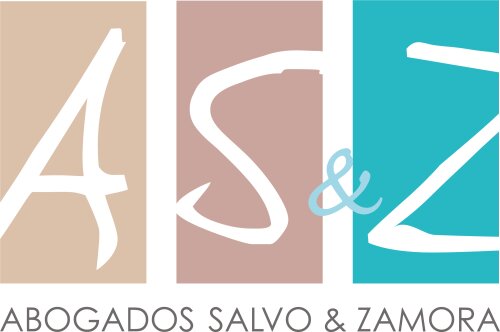Best White Collar Crime Lawyers in Valparaíso
Share your needs with us, get contacted by law firms.
Free. Takes 2 min.
List of the best lawyers in Valparaíso, Chile
About White Collar Crime Law in Valparaíso, Chile
White-collar crime refers to non-violent offenses usually committed for financial gain or to obtain business advantage. In Valparaíso, as in the rest of Chile, white-collar matters commonly include fraud, embezzlement, money laundering, corruption and bribery, tax crimes, insider trading and other offenses affecting companies, public institutions or financial markets. Investigations and prosecutions are conducted under the national penal and procedural framework, but many investigative steps and courtroom appearances will take place in Valparaíso-based institutions such as the Fiscalía Regional de Valparaíso and the courts and police units that serve the region.
Because white-collar cases often involve complex facts, financial records, corporate structures and international elements, legal advice is important early. Chilean law treats both natural persons and legal persons as potentially liable - individuals may face criminal penalties while companies can face fines, debarment from public contracts and other administrative sanctions under specific statutes.
Why You May Need a Lawyer
White-collar matters raise high stakes - criminal penalties, reputational harm, regulatory sanctions and civil exposure. You should consider retaining a lawyer in Valparaíso if any of the following situations apply:
- You are notified that you are the subject of a Fiscalía inquiry, interview or search.
- Authorities request documents from you or your company, or execute searches and seizures at business premises.
- You are under investigation for alleged accounting fraud, tax evasion, embezzlement, bribery or money laundering.
- You are a corporate officer, director or employee facing possible charges or suspension from work.
- Your company is accused of criminal liability under Law No. 20.393 or faces regulatory sanctions from the Servicio de Impuestos Internos, Comisión para el Mercado Financiero or other authorities.
- You need to prepare a voluntary statement, cooperate with prosecutors, negotiate plea agreements or deal with asset-freeze measures.
- You require help to manage reputational risk, protect privileged communications, preserve evidence and maintain compliance programs that can mitigate exposure.
Local Laws Overview
Several legal instruments and institutions matter for white-collar cases in Valparaíso:
- Código Penal: Defines criminal offenses such as fraud, embezzlement, bribery and related crimes and sets criminal penalties.
- Código Procesal Penal: Governs criminal procedure - how investigations are conducted, roles of the Ministerio Público (Public Prosecutor), rights of the accused, and trial procedures. Ministerio Público leads criminal investigations and prosecutions.
- Law No. 20.393 on Criminal Liability of Legal Persons: Establishes corporate criminal liability for certain offenses, including money laundering, financing of terrorism, receiving stolen property and bribery. Companies can face fines, dissolution of legal benefits and restrictions on public procurement if they are held liable.
- Anti-money-laundering framework and Unidad de Análisis Financiero (UAF): The UAF analyzes suspicious transactions and can refer matters to prosecutors. Financial institutions have reporting obligations that often trigger investigations.
- Tax law and the Servicio de Impuestos Internos (SII): Tax crimes and related investigations can lead to criminal referrals and coordinated action between the SII and Ministerio Público.
- Financial markets and the Comisión para el Mercado Financiero (CMF): The CMF supervises securities and financial institutions and can impose administrative sanctions and cooperate with criminal authorities on market misconduct and insider trading.
- Local institutions in Valparaíso: Fiscalía Regional de Valparaíso is the prosecuting authority in the region. The Policía de Investigaciones de Chile (PDI) provides investigative support through its economic crimes brigades. Local courts include Juzgados de Garantía and the Corte de Apelaciones de Valparaíso for appeals.
Frequently Asked Questions
What exactly counts as white-collar crime in Valparaíso?
White-collar crime covers a range of non-violent offenses committed for financial or commercial advantage. Common examples are fraud, accounting or financial statement manipulation, embezzlement, bribery and corruption, tax evasion, money laundering, insider trading and conspiracy to commit such acts. The precise legal definition depends on the specific offense in the Código Penal and other statutes such as Law No. 20.393.
How do investigations usually start?
Investigations can begin in different ways - reports from banks or financial institutions (mandatory suspicious transaction reports), complaints from victims, audits or regulatory findings, whistleblowers, media reports or routine inspections by authorities like the SII or CMF. The Unidad de Análisis Financiero may refer suspicious cases to the Ministerio Público, which can open formal investigations and instruct the PDI to gather evidence.
What should I do if the Fiscalía contacts me or my company?
Do not volunteer more information without legal advice. Contact an experienced criminal lawyer immediately. You have the right to remain silent and to be accompanied by counsel during interviews. Preserve documents and avoid altering or destroying evidence. A lawyer can guide cooperation, petition for protected communications, request limits on searches, and negotiate how and when documents are produced.
Can a company be criminally prosecuted in Chile?
Yes. Law No. 20.393 provides for criminal liability of legal persons for certain offenses, including money laundering, receiving stolen goods, financing of terrorism and bribery. Liability can lead to fines, corrective measures, or disqualification from public contracts. Courts may consider the existence of internal compliance programs when assessing liability and sanctions.
What are common pre-trial measures authorities may impose?
Authorities may request judicial measures such as preventive detention for individuals (in serious cases), restrictions on leaving the country, travel bans, house arrest alternatives, seizure of assets and bank accounts and formal prohibitions on carrying out certain business activities. The application and scope of measures are subject to judicial authorization under the Código Procesal Penal.
Will I automatically go to jail if charged?
No. Outcomes depend on the offense, evidence strength, criminal history and judicial discretion. Many white-collar cases result in fines, probation, restitution obligations or negotiated agreements rather than long prison terms, but serious fraud, large-scale embezzlement, money laundering and corruption can carry custodial sentences. A lawyer can help negotiate alternatives and present mitigating factors.
What is the difference between criminal and civil liability in these cases?
Criminal liability can result in fines and imprisonment and is pursued by the Ministerio Público. Civil liability involves damages or restitution claims by victims or affected parties and is pursued through civil courts or as ancillary claims in criminal proceedings. A single event can give rise to both criminal charges and civil claims, so coordination of defense strategies is important.
How long do authorities have to bring charges?
Statutes of limitation vary by offense and are set by Chilean law. Time limits depend on the gravity of the crime and other legal factors. Complex investigations or ongoing conduct can affect the timing. Because limits differ by case, consult a lawyer promptly to assess relevant deadlines and preserve defenses.
Can foreign conduct lead to prosecution in Chile?
Yes, under certain circumstances. Chilean authorities may claim jurisdiction if the effects of the conduct are felt in Chile, if Chilean nationals or companies are involved, or where international cooperation and extradition treaties apply. Cross-border evidence gathering and mutual legal assistance are common in complex white-collar cases.
How do I choose the right lawyer in Valparaíso?
Look for criminal defense lawyers with specific experience in economic and corporate crime, knowledge of local prosecutors and courts, familiarity with forensic accounting and financial investigations, and a track record in both individual and corporate cases. Ask about fee structures, communication practices, potential conflicts of interest and whether the lawyer or firm can coordinate with experts such as forensic accountants and compliance advisers.
Additional Resources
When facing or researching white-collar matters in Valparaíso, these national authorities and bodies are commonly involved and can provide official guidance or enforcement:
- Ministerio Público - the Public Prosecutor responsible for criminal investigations nationwide and regionally through the Fiscalía Regional de Valparaíso.
- Policía de Investigaciones de Chile (PDI) - provides investigative support and has economic crimes units that work with prosecutors.
- Servicio de Impuestos Internos (SII) - tax authority that may investigate tax crimes and refer cases to prosecutors.
- Unidad de Análisis Financiero (UAF) - analyzes suspicious financial transactions and supports anti-money-laundering efforts.
- Comisión para el Mercado Financiero (CMF) - oversees securities and financial markets and can impose administrative sanctions.
- Juzgados de Garantía and Corte de Apelaciones de Valparaíso - the local courts that handle criminal procedure and appeals in the region.
- Local bar associations and legal directories - useful for locating criminal defense attorneys with regional experience. You can also contact law firms that publish their practice areas to find lawyers focused on economic and white-collar crime.
Next Steps
If you suspect you are under investigation or have been contacted by authorities, act promptly. Practical next steps include:
- Secure counsel immediately. Early legal advice can protect your rights, manage communications with investigators and reduce the risk of adverse procedural steps.
- Preserve documents and data. Avoid deleting or altering files. Your lawyer can advise on legal obligations and steps to safeguard evidence while avoiding obstruction charges.
- Limit communications. Do not provide voluntary statements or submit documents without counsel present, especially if you are unsure about the legal consequences.
- Prepare a response plan. For companies, coordinate a response team including legal counsel, compliance, finance and communications experts to manage defense, internal investigations and public relations.
- Consider internal remediation. If misconduct is identified, demonstrate corrective actions such as compliance improvements, disciplinary measures and co-operation with authorities to potentially mitigate sanctions.
- Understand costs and timeline. White-collar cases can be lengthy and costly. Discuss fee arrangements, retainer expectations and likely stages in the process with your lawyer.
White-collar crime matters are legally and factually complex. Local expertise in Valparaíso matters because of regional prosecutors, courts and investigative teams. If you need legal help, contact a qualified criminal defense lawyer in Valparaíso as soon as possible to understand your position and protect your rights.
Lawzana helps you find the best lawyers and law firms in Valparaíso through a curated and pre-screened list of qualified legal professionals. Our platform offers rankings and detailed profiles of attorneys and law firms, allowing you to compare based on practice areas, including White Collar Crime, experience, and client feedback.
Each profile includes a description of the firm's areas of practice, client reviews, team members and partners, year of establishment, spoken languages, office locations, contact information, social media presence, and any published articles or resources. Most firms on our platform speak English and are experienced in both local and international legal matters.
Get a quote from top-rated law firms in Valparaíso, Chile — quickly, securely, and without unnecessary hassle.
Disclaimer:
The information provided on this page is for general informational purposes only and does not constitute legal advice. While we strive to ensure the accuracy and relevance of the content, legal information may change over time, and interpretations of the law can vary. You should always consult with a qualified legal professional for advice specific to your situation.
We disclaim all liability for actions taken or not taken based on the content of this page. If you believe any information is incorrect or outdated, please contact us, and we will review and update it where appropriate.









